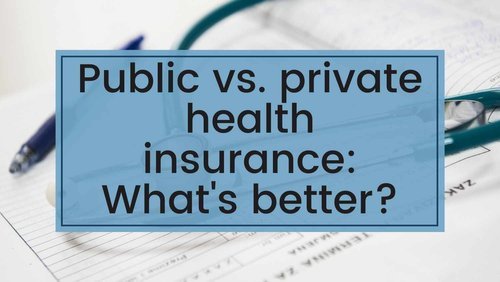What is an Insurance Premium and How is it Calculated?
Insurance is one of the essential components in modern life. It allows individuals and companies to distribute risks and financial uncertainty. Within the many terminologies of insurance, there is the “insurance premium.” This article will cover what an insurance premium is, how it is calculated, and why it matters. Also, we will look at types of insurance policies that everybody should know, providing a clear understanding of insurance and the benefits associated with it.
Insurance Premium
An insurance premium refers to an amount of money that is paid by a person or business entity to an insurance company for coverage. By paying this, it provides the policyholder with financial protection against certain risks that are covered under the respective policy. Insurance premiums can be paid monthly, quarterly, semi-annually, or annually, depending on the agreement with the insurer.
For instance, when you buy car insurance, the premium is what you pay to keep the policy in force. In consideration, the insurance company promises to pay for some expenses that could arise from an accident, such as repairs or medical bills.
Factors Affecting Insurance Premiums
There are several factors that affect the price of an insurance premium. Insurers evaluate these factors to determine the risk of underwriting. The key factors include:
1. Type of Insurance Policy
The type of insurance you choose is a big determinant of the premium. For example, life insurance premiums are different from health insurance premiums because the risks and coverage are different. Knowing the types of insurance policies that everyone should know will help in informed decision-making.
2. Coverage Amount and Deductibles
The amount of coverage you select influences the premium. Generally speaking, the higher the limits of coverage, the higher the premium. Similarly, the deductible-the amount you agree to pay out-of-pocket before insurance kicks in-also plays a role. Choosing a higher deductible usually lowers the premium but increases your financial responsibility in case of a claim.
3. Age and Health of the Policyholder
In the case of health and life insurance, age and health are crucial. The younger and healthier one is, the lower their premiums will be because they fall into a lower risk category.
4. Location
Your geographical location may impact your premium rates. For instance, home insurance premiums may be higher for areas prone to natural disasters, while auto insurance premiums may depend on local traffic conditions.
5. Claims History
Your past claims history can affect your premium. A history of frequent claims points to higher risk for the insurer, and thus, they will charge a higher premium.
6. Lifestyle Choices
Lifestyle habits such as smoking or being involved in high-risk activities raise your premium, most especially in health and life insurance policies.
How Are Insurance Premiums Calculated?
Insurance firms make use of complicated algorithms along with underwriting procedures for calculating premiums. Here’s an overview of the key steps:
1. Risk Assessment
The insurer evaluates the probability of a policyholder making a claim. It considers variables such as age, health, occupation, and geographical location.
2. Actuarial Science
Actuaries use statistical data to forecast the possibility of future claims. They study past data and emerging trends to decide on an adequate premium for a particular risk.
3. Policy Terms and Coverage
The actual details of the insurance, like the type of cover and policy limits, impact the premium directly. For instance, comprehensive auto insurance will be more expensive than a liability-only coverage.
4. Discounts and Credits
Most insurers offer discounts for things such as safe driving, bundling multiple policies, or the installation of security systems. These can lower the overall premium.
5. Administrative Costs
It means that the insurers add operating costs like customer service and marketing into the premium.
Types of Insurance Policies Everyone Should Know
Understanding the types of insurance is important in helping one choose the right cover. Some of the types of insurance policies everyone should know are discussed below:
1. Health Insurance
Health insurance covers medical costs accrued through doctor visits, hospital stays, and prescription drugs. It is crucial to control unexpected health care expenses.
2. Life Insurance
Life insurance offers your beneficiaries financial sustenance upon the occurrence of your death. It generally comes in two types: term life insurance, for a specified period of time, and whole life insurance, which is lifetime coverage.
3. Auto Insurance
Auto insurance provides protection against losses arising due to accidents, theft, or any damage to one’s car. In most countries, this type of insurance is mandatory, covering liabilities, collisions, and comprehensive risks.
4. Homeowners Insurance
Homeowners insurance pays for the damages on your home and your personal belongings if it gets damaged due to fire, theft, or any other natural disaster. It also provides liability coverage if someone gets injured on your property.
5. Renters Insurance
Renters insurance provides insurance to tenants against loss of personal belongings and liability coverage. This is cheaper than homeowners’ insurance.
6. Disability Insurance
Disability insurance replaces a portion of your income if you are unable to work due to illness or injury. It is highly important for those in physically demanding jobs.
7. Travel Insurance
Travel insurance covers unexpected expenses during trips, such as medical emergencies, trip cancellations, or lost luggage.
8. Business Insurance
Business insurance covers for risks such as property loss, liability, and also employees. It is vital for entrepreneurs or business owners.
By delving into these types of insurance policies that everyone should know, you will explore which policies fit your need and budget.
How to Manage Insurance Premiums
Following are ways to manage and probably get lower premiums for your insurance:
1. Compare Quotes
Shop around and compare quotes from various insurers for the best rate. This may be a lot easier with the use of online tools or insurance brokers.
2. Bundle Policies
Most of the time, insurers provide a discount to those policyholders who apply for multiple policies simultaneously, including home and auto insurance.
3. Keep a Good Credit Score
A strong credit score might lower premiums, as an insurer also uses credit status to estimate risk.
4. Choose Higher Deductibles
Choosing a higher deductible reduces the premium, but ensure you can afford the out-of-pocket costs if needed.
5. Utilize Discounts
Ask your insurer about available discounts, such as those for safe driving, installing security systems, or being a loyal customer.
6. Review Your Policy Regularly
Regularly review your insurance policies to ensure you have adequate coverage without paying for unnecessary extras.
Why Understanding Insurance Premiums Matters
Knowing how insurance premiums work is important in making informed financial decisions. It ensures that you select the right policy that meets your needs while balancing up coverage and cost. In addition, understanding the different types of insurance policies everyone should know equips you with the knowledge to protect yourself and your assets effectively.
Conclusion
An insurance premium is an important component of any form of insurance policy, reflecting the price one pays for protection against risk. Understanding what determines premiums and how they are calculated significantly informs your decision on insurance needs. Further, understanding the types of insurance policies that everyone should know will go a long way in ensuring that you select the right coverage for your personal or business needs.
Insurance is not an expense but rather an investment in your peace of mind and financial security. Take time to research, compare policies, assess your needs for coverage, and work with trusted insurers to safeguard your future.




